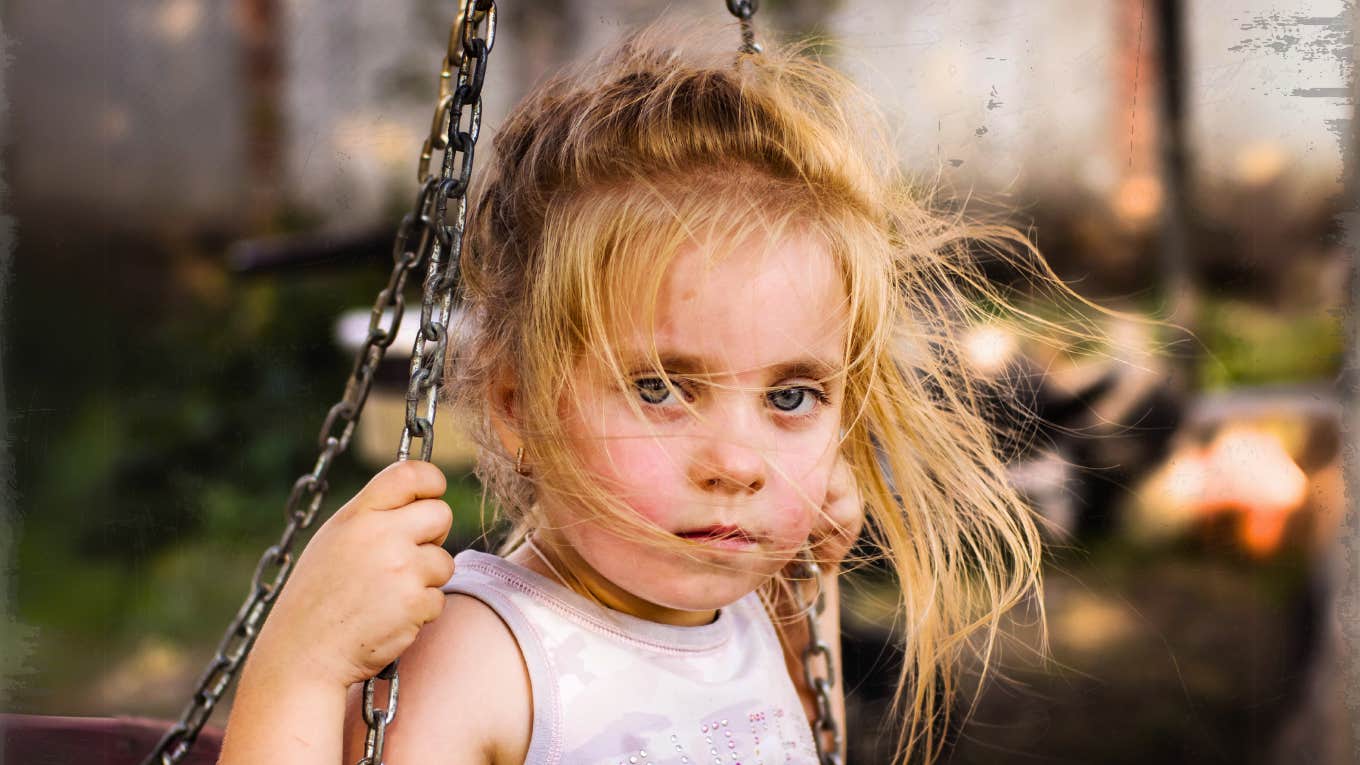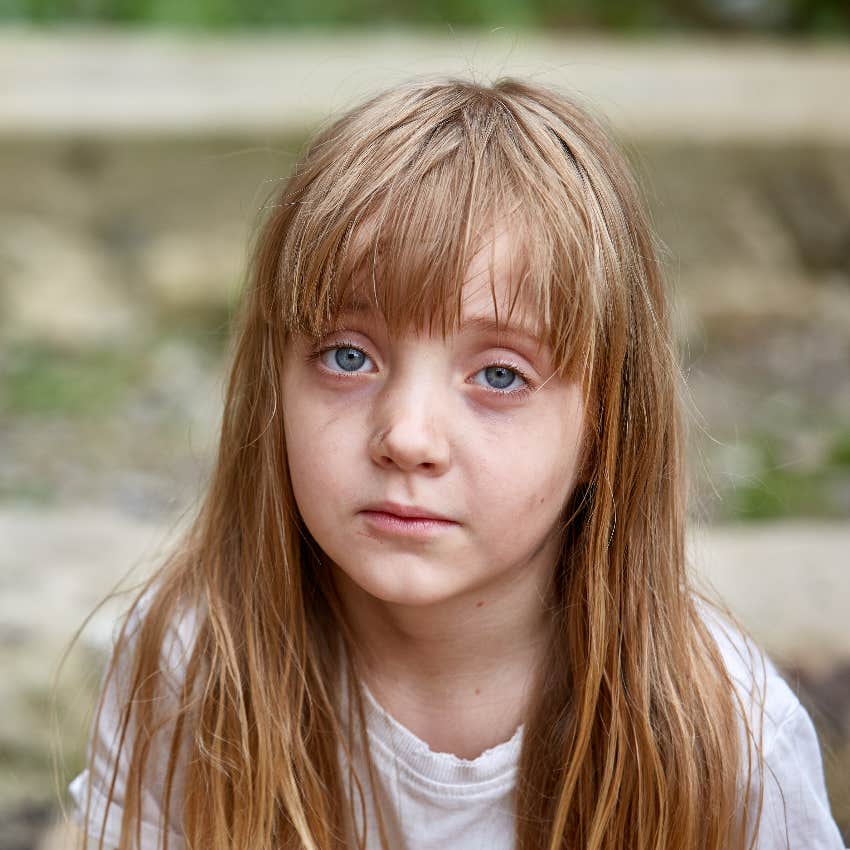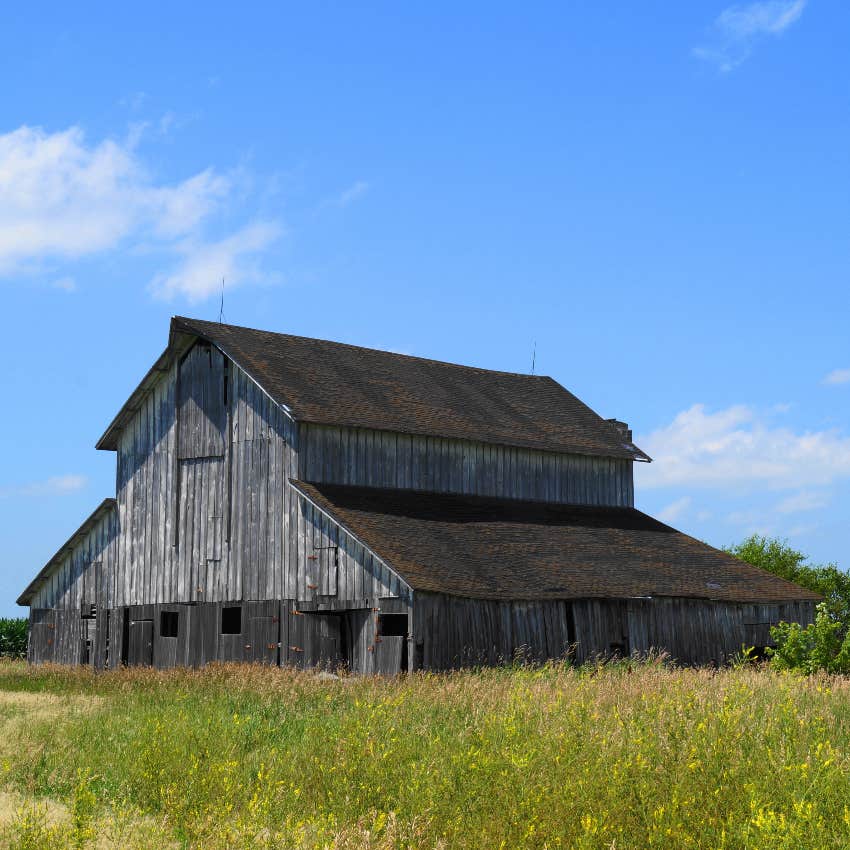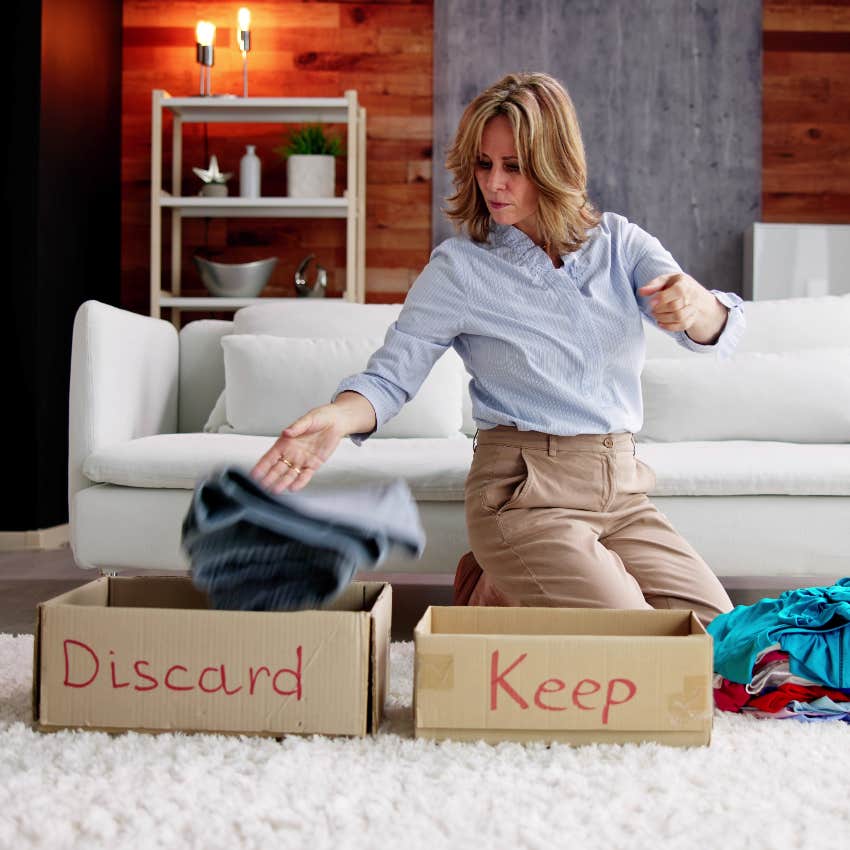I Grew Up Poor In America & The Effects Of Not Having Enough Are Lifelong
I’m in my 60s and the girl in ill-fitting and stained clothes is still with me.
 Thirdman | Pexels
Thirdman | Pexels When I was in the fifth grade, my mother was unable to take care of me and my siblings. We were poor anyway, and without Mom’s help, things got worse owing to our accident — a fire that injured and incapacitated Mom.
On a family fishing trip, a gas station attendant neglected to cap the propane tank for the camper my folks borrowed from our grandparents. When Mom lit the camper stove to cook dinner, the explosion was deafening.
Mom was blown back onto the little bench by the camper table. We three kids stood outside, screaming and screaming. My father ran from downstream, falling over river rocks, dropping his fishing gear, and stumbling in those overall rubber waders. Dad! Dad! We screamed. He threw down the fishing pole, pumping his arms to run. He leaped in the camper door.
Flames engulfed him. Can you imagine? The massive fireball and explosion, the gray smoke pouring out the vents. Three children screaming for their mother. Mom was getting burned alive. Dad threw her out the door through the flames. She barely landed on her feet. She stood, legs shiny red.
I ran back and forth to the water, filling a little yellow bucket and running back to put out items Dad pitched out. He got a fire extinguisher in there going and sprayed the fire out. Mom had third-degree burns from her ankles to her thighs as she was wearing shorts. For months, she recovered in bed.
I grew up poor in America and the effects of not having enough are lifelong.
I learned, as a young child, the horror of being an uncared-for child in ill-fitting and stained clothes.
I was not a cute kid anyway, not by any means. You know those little girls you see with blond hair, perfectly even pigtails tied with blue ribbons, and ruffly pink socks? I was the polar opposite of that description. What did I wear? Anything I could find that fit.
I had lank brown hair. Mom told me, “Don’t worry! When you get older, you can dye it!”
“Why would I dye my hair,” I asked her.
“It’s mousy brown. There’s nothing special about it,” she said.
Mom didn’t mean to hurt my feelings. My sister’s golden-blond hair was special. So was my brother’s thick, curly hair. Mine? Mom spruced it up by cutting uneven bangs that fell like a cheap curtain over my forehead.
 Oleksiy Rezin | Shutterstock
Oleksiy Rezin | Shutterstock
As soon as I was eight years old, my larger-than-other girls’ size was obvious. We lived on spaghetti and macaroni, along with frozen pizza. For breakfast? Fruit Loops, Cocoa Puffs, all that stuff. After-school snacks? Cookies and fried bologna sandwiches on white bread.
I was one of a few big girls in my class. I held my little chin high to pull my double chin up. Maybe no one would notice.
With Mom stuck in bed with burned legs, I had no one to help me with clothes. Our accident was in September, so there was no school clothes shopping. I was bigger than the previous year and started fishing around in Mom’s closet for anything that fit — a peasant blouse with a long black stretchy skirt. Grownup clothes, and I was playing an unattractive game of dress-up.
My scuffed brown shoes and mismatched socks were a dead giveaway to our socioeconomic status.
No cute saddle shoes. No bright red knee socks. Old falling-down white socks, one with an argyle pattern, one plain texture. They were both white, though. Whitish.
I wore a turquoise-blue shirt dress every few days, a godawful thing that was stretchy cotton, like a polo shirt. It was nearly trainer-bra time, and that dress didn’t hide a thing.
I spent the first two months of my fifth-grade school year embarrassed and downtrodden. One day, the teacher — a cruel woman who didn’t know what was happening at home — picked up one of my hands and looked at my fingernails.
“You need to scrub your fingernails,” she said, eying me with disgust. I shrank into my desk, humiliated. Tears stung my eyes.
When Mom recovered, her first move was to meet with the teacher and give her what-for. My report card had migrated from all As to low Cs, and when Mom and Dad asked why, I started crying and said, “My teacher doesn’t like me.” They didn’t press for details. I was not in trouble for my low grades. My teacher was. My depression was obvious.
In the second term of school, my morale and grades improved, and the teacher tried to be kinder to me. She was caught by Mom and did what she could to change her ways. I never trusted her again, though. Once bitten, twice shy. She bit me hard, and I had scars. It was the end of my innocence with authority figures.
Our poverty, somewhat hidden before, leaped to the forefront when Mom was disabled by her horrendous burns. Then, she decided to go to work.
Within a year, things got better for us, somewhat. We were still eating rice pudding for dessert, with sugar, cinnamon, and raisins. And thought it was delicious, too! But there were newer and nicer clothes for my siblings and me.
My parents purchased a farm from my grandparents — and farm payments and taxes were not cheap. I knew most of my parents’ money was going to payments.
I stood at the kitchen sink of our tiny farmhouse — 1100 square feet, and one bathroom for five of us — and gazed at the expansive field. In the distance was a huge, weathered gray barn. On occasion, a fox clambered across the grass and disappeared to the creek to the west. How I loved growing up there (and live here now, and am so grateful).
 Bird.Nest.Creations | Shutterstock
Bird.Nest.Creations | Shutterstock
But when children don’t have sufficient clothing to look decent for school, it’s embarrassing.
When I was in my 20s, Dad and I talked.
“How come you kids stole my socks?” he asked, “You all wore my socks all the time.” I looked at him, puzzled.
“We didn’t have any socks of our own,” I said. He was aghast.
“Wasn’t your mother buying you underwear?”
“No.”
Forever after, Dad took me to JCPenney’s every year, handed me his credit card, and sat in the women’s underwear section. He called after me, “And get a few bras too!” I was mortified but incredibly grateful. That was later, though, when I was an adult.
When I was 12 or so, Mom, who initially purchased clothes for us, began buying fancy clothes for herself, shopping at the best boutique in town. She said she needed nice clothes for work. At the hardware store. She had apricot-colored finely woven sweaters. Knit dresses in a colorful herringbone, and shiny high heels. Gold necklaces that looped down over her white cotton shirts.
My siblings and I scraped around to find a pair of jeans long enough to wear and dug in Dad’s sock drawer. We wore huge ugly nylon coats, a size too big to grow into.
While it sounds like I have anger toward Mom, I don’t. She was a beautiful woman and no doubt struggled with having three teenagers under one roof and a less-than-doting husband. She did what made her happy. And that’s OK.
Growing up without decent clothes has affected me as an adult, and I’m in my 60s now. I routinely remind myself, 'You have enough.'
I tell myself, "You have many socks, and many pairs of jeans. You are OK. Don’t buy more.”
Once or twice a year, I go through my jeans and socks — two items I over-purchase — and put a donation box together. It is not unusual for me to donate ten pairs of pants and twenty pairs of socks. This sounds ridiculous, doesn’t it? I don’t know if I will ever feel safe with having enough clothing. My sister is the same way, with a closet overflowing with clothes.
 Andrey_Popov | Shutterstock
Andrey_Popov | Shutterstock
When I taught high school, one boy came to school every day in a big, heavy pair of brown leather work boots. Then, he appeared in stained old tennis shoes. He was gloomy, staring down and putting his feet far under his desk.
“Where did your boots go?” I quietly asked him, pulling him aside. He looked unhappy.
“The soles came apart. My mom made me throw them away. I hate these tennis shoes.”
The next day, I went to school with a new pair of heavy brown-leather work boots my husband donated. They were the boy’s exact size. Of course, I asked him! I let the counseling department know my husband and I were donating the shoes. At the end of English class, I kept him back for a moment and handed him the bag.
“My husband thought you could use these,” I said. He opened the bag and smiled. It was like the sun on a rainy day! He pulled off his tennis shoes and put them on, a perfect fit!
In my heart, I know nothing means more to a young person than feeling good about themselves. I sincerely hope I can continue making a difference for others as long as I am able. While I’m retired from teaching now, I take my donations to our local thrift store, which provides clothing for others without a fee.
That’s how I have moved beyond being a little girl in mismatched socks, silently crying at her desk. I am spinning gold, weaving joy for others. This means the world to me.
Debra Groves Harman is a creative non-fiction memoirist who's been published in myriad magazines.

